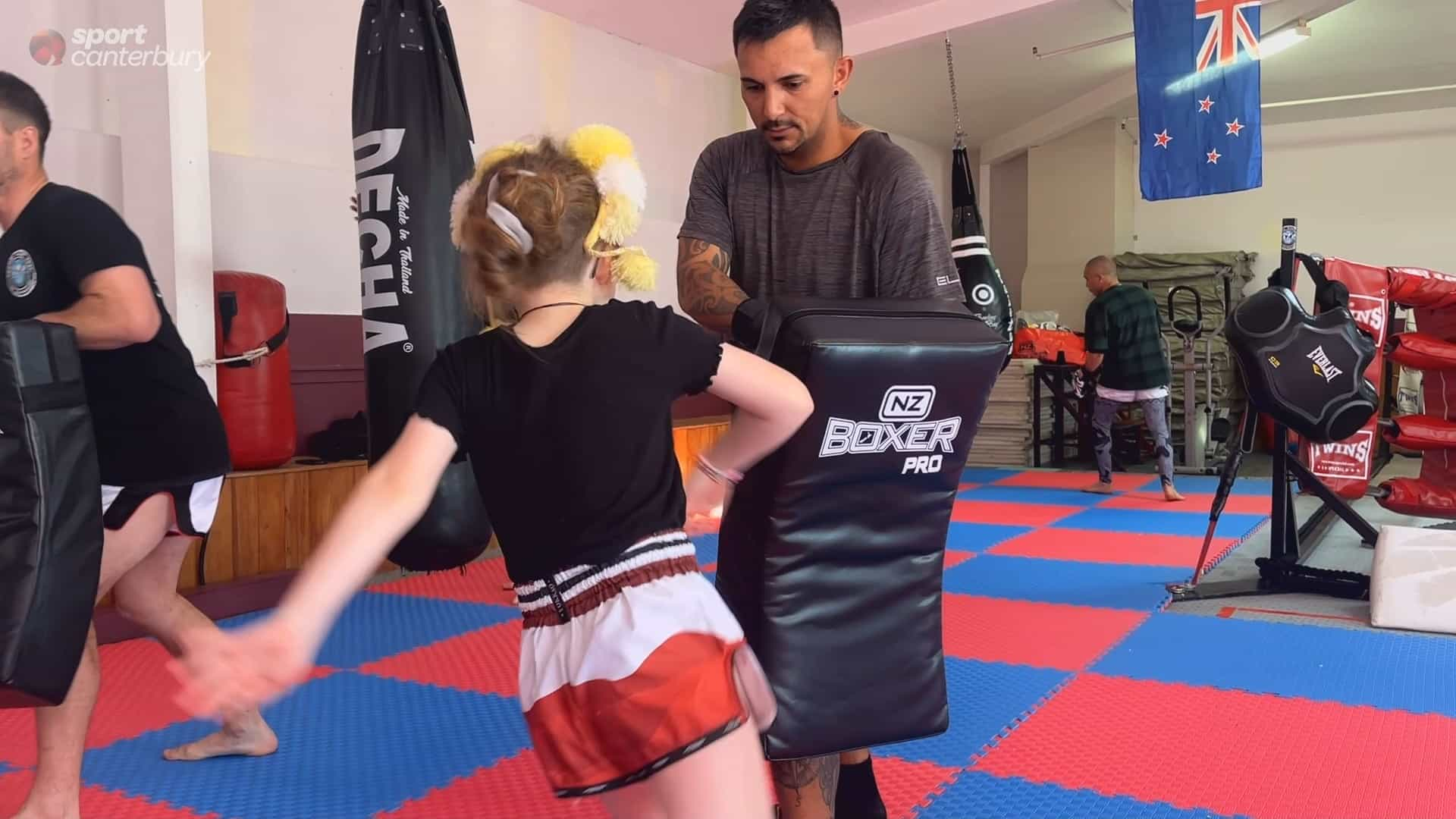

Poutini Muay Thai: From garage beginnings to thriving community hub
Tū Manawa

A unique community initiative that started in a Hokitika garage is making waves as a thriving hub for tamariki and rangatahi.
Poutini Muay Thai, founded by Nick Snowden and Ryan Young, has been a beacon of fitness and mental wellbeing in Hokitika for a year and a half.
Read more:
“When I first arrived in town, there was nothing like this around,” says Snowden. “So, I teamed up with another coach and created our club. Since then, we’ve been lucky enough to get some funding from Tū Manawa.”
Tū Manawa Active Aotearoa, administered by Sport Canterbury for Sport New Zealand Ihi Aotearoa, is a fund designed to help tamariki and ranatahi access quality play, recreation and sport opportunities within their community.
The opportunity to support Poutini Muay Thai through Tū Manawa arose when a dedicated wahine from the community approached Mel Packham, Sport Canterbury West Coast’s Healthy Active Learning Advisor.
“Recognising the impact that access to proper gear could have on their training and confidence, she wondered if I could provide some funding to support this cause. Her passion for empowering the youth was inspiring and felt like a meaningful way to help enrich them,” Packham says.
As a result, Poutini Muay Thai received $10,000 from Tū Manawa Active Aotearoa - which allowed the club to purchase equipment.
Packham emphasises the club isn’t just a training facility but a community fostering discipline, resilience and confidence.
“For many, Muay Thai has become an outlet for personal growth, mental focus and physical health, all of which contribute to a stronger, more connected community,” she says.
Poutini Muay Thai’s mission is to offer quality training benefiting the physical and mental health of tamariki and rangatahi.
“Mental health is a big thing for me,” Snowden explains. “I’ve known people that have struggled with that sort of thing and having a caring, positive environment where they can let out frustrations and build up a sweat and work with like-minded people, I think is good – and they make connections with people they wouldn’t usually connect with.”
The club emphasises structure, which Snowden believes is foundational to building discipline.
“I think discipline always starts at home and a home environment is 99 percent of a child’s life,” he says.
“We provide that one percent which can be [a] structure that may or may not be in their lives and, through that structure, they know what’s expected of them and work out ways to get where they need to be.
“You can expect to see some children getting a good sweat up, working hard, working well together, listening to coaches, building skills and having a bit of fun,” Snowden adds.
Young, who trained in karate from a young age and later transitioned to Muay Thai, started the club with Snowden after moving to Hokitika from Australia.
“We got together and started in a garage at a boxing club that was already existing, and we went from training one or two kids right the way up to training five, six, seven – it just got bigger and bigger and bigger,” Young says.
The club operates on a koha (donation) basis, ensuring accessibility for everyone, he says.
“We don’t charge at all for what we do, we don’t take any money for what we do – we’re here for the community and trying to grow a whānau environment here with the kids.”
The club also provides a supportive environment for neurodiverse people.
“We’ve got children who train with us – and adults who train with us as well – who have autism disorders, anxiety disorders and yet they come here and they can be a part of this whānau environment that we’ve built here where they feel supported to train and do their skills,” says Young.
As Poutini Muay Thai grows, the club remains dedicated to fostering physical and mental wellbeing in Hokitika, Young says.
“That’s what we’re about; providing a space for people to come and grow and learn a skill and get fit in a safe environment where they don’t have to pay through their teeth to do it.”
And the kaupapa continues to grow as more people learn about it.
“It’s a community that values and believes in the potential to create a space where youth feel encouraged, supported and motivated to reach their goals,” says Packham. “It’s more than just a club, it’s a whānau.”
Article added: Wednesday 20 November 2024

